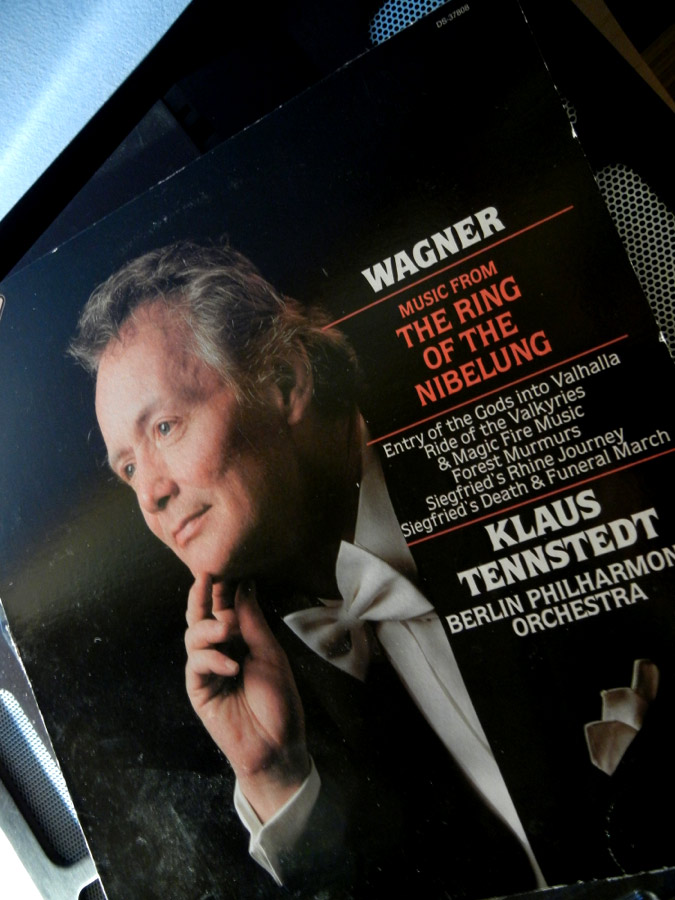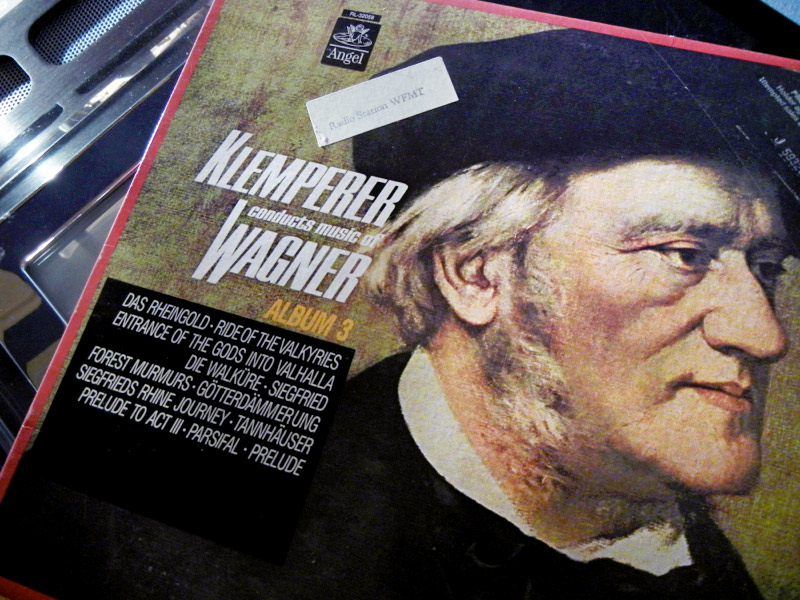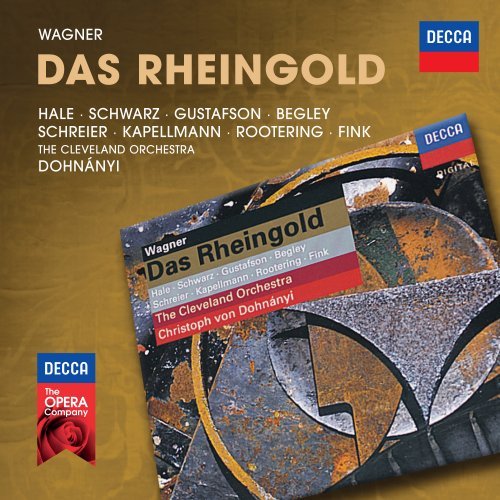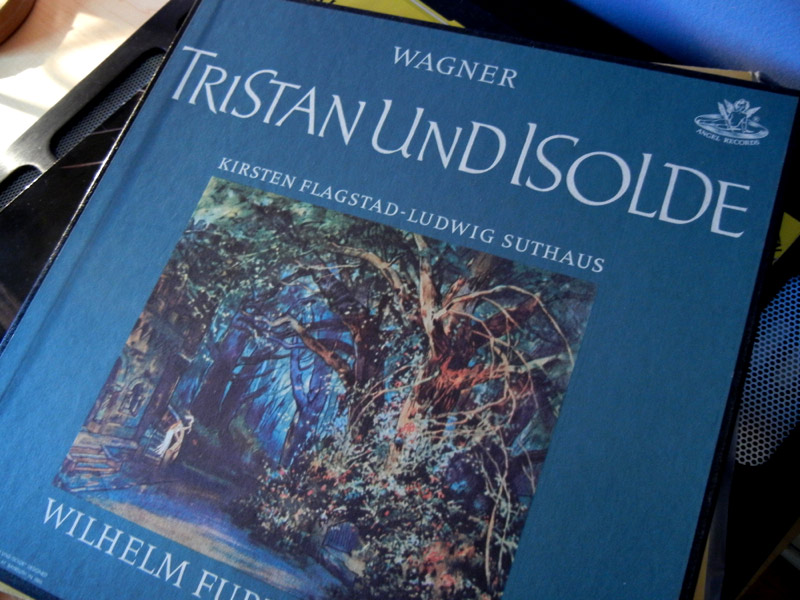Hi all, with the bicentennial of Wagner's birth in 2013, thought it'd be fun to share with you some personal reviews and notes of his operas, which I've gathered over the years. Although I listened to and own many recordings, this is not a complete survey. One opera at a time - and we start with a lengthy one:
Part 1: Tristan und Isolde
Tristan, Wagner's most ambitious and influential opera, is the essence of Schopenhauer set to drama and music. Wagner had become familiar with the work of Schopenhaur and his idea of the world driven by unachievable desires in the mid 1850s, and subsequently started work on an opera devoted entirely to this idea. While working on it, he became involved with Mathilde von Wesendonck, the wife of his then-sponsor (when Wagner's wife found out, this led to one his several exiles). He set five of Mathilde's poems to music, the Wesendonck Lieder, two of which were studies for Tristan and include themes that made it into the Act II love duet and the Act III prelude of the opera. The lead parts of the opera, Tristan (tenor) and Isolde (soprano) are generally regarded to be among the heaviest operatic roles ever written, and have been difficult to cast since the premiere in 1865.
The most famous recording is the 1952 FurtwÄngler - an ambitious and conscious undertaking by Walter Legge to preserve a famous partnership, Ludwig Suthaus, Kirsten Flagstad and Wilhelm Furtwangler. Furt and Legge didn't like one another but set their differences aside. Famously, Legge's wife, Elisabeth Schwarzkopf, dubbed in Isolde's high Cs. It's an unmissable recording, but I have to say despite the very capable voices, they do sound a bit long in the tooth.
In 1966, Philips recorded the Tristan live, but one act at a time, under BÖhm, with Birgit Nilsson and Wolfgang Windgassen. BÖhm is fast in an opera that is supposed to be slow, the singers do a great job although Windgassen sounds overparted at times. It's many people's favorite but for me, it misses the essence.
There are a number of highly regarded live performances under Karajan, but his first and only studio recording for EMI happened in 1972, with Jon Vickers and Helga Dernesch. Sadly not one of Von K.'s most inspired performances, but his singers are hugely impressive and despite Vickers' dodgy German pronunciation, sound idiomatic.
Early 1980s, Carlos Kleiber and Lenny Bernstein committed their readings to disc. Both are controversial. Kleiber was never happy in the studio and apparently became so distressed with René Kollo's Tristan, he ran out before the sessions were complete and never returned to the studio. DG managed to complete the recording from practice takes. The result is quite special, with a Mozartean touch and sensitive singers - but for this reason, very studio bound.
Bernstein did it live, but like BÖhm, one act at a time to give the singers rest between acts. It's the slowest performance ever recorded - the original CD issue consisted of 5 discs. Hildegard Behrens and Peter Hofmann are committed and have nice voices, but a bit small for the parts. All in all, my personal favorite - it's SLOW but intense, and one of Bernstein's supreme achievements.
In 2004, DG released another live performance, under Thielemann. He is good, but his singers aren't memorable. Thomas Moser gives it his best shot, drowns in Act II but is surprisingly good in Act III. Deborah Voigt has a big voice but doesn't really impress at any time.
EMI followed in 2005 with the - for now - most recent studio recording, under Tony Pappano, with Placido Domingo and Nina Stemme. Stemme sounds very good and gives a credible interpretation (she does miss some of the irony in the role, a small thing compared to what is there). Domingo is a big surprise, despite the fact that he was in his 60s at the time of the recording, he sounds very good and up to the task (helped by the engineers, but still). He doesn't sound authentically Wagner, and he is careful - but the performance is quite the achievement. Pappano conducts assuredly, fastish but not hurried.
All in all, many of the recordings have merit and none is ideal. FurtwÄngler and Karajan are generally safe recommendations, as is Pappano if you like Domingo, but I love the Bernstein for its focus. Just the beautifully sustained overture, clocking in at almost 15 minutes, is a work of art.
Comments welcome!
Cheers,
EJ
Posted on: 26 February 2013 by EJS
Part 2: Der Ring des Nibelungen
Wagner's Der Ring des Nibelungen is a cycle of four operas: a long overture (Das Rheingold) and three 'days' (Die Walküre, Siegfried and Götterdämmerung). The Ring cycle is known for Wagner's extensive use of 'Leitmotiv', recurring musical themes that depict or recall a situation, character or object. One of the few Leitmotivs that occurs in all the operas unchanged is the one associated with Alberich's death curse on the rhine gold, first heard in Rheingold's last scene. To perform the works, Wagner built his own opera house in Bayreuth. Although rebuilt after the war, it continues to set the standard for Wagner singing to this day.
The story spanning the four operas is based on two texts: the German medieval 'Nibelungenlied' and the Nordic 'Völsunga' saga. From their common source, Rheingold shares story elements with Tolkien's Hobbit and Lord of the Rings but as always with Wagner, his focus is not on plot or action but on the behaviour and motivations of the large cast of characters.
Das Rheingold was the last opera of the four to be conceived and written, but the first to be scored. The pace is high, for Wagner, as there is a lot of stage to set for the following operas. In Rheingold, Wotan builds Walhalla with the help of two giants in exchange for one of his daughters. Not willing to honor his side of the bargain, Wotan asks the Giants to take something else instead and they choose to be covered in gold. This gold includes two special items; one is a cursed ring that gives its owner power at the cost of giving up love. Immediately, one giant slays the other, turns himself into a dragon and starts guarding his treasure. Rheingold is Wagner's most tune packed opera, and it's a great place to start exploring his operas.
I own recordings of Das Rheingold under Keilberth, Solti, Karajan, Levine (2x), Haitink and Dohnanyi (in order of appearance), and have listened to / no longer own Furtwängler (Rome), Barenboim, Böhm, Janowski, Sawallisch, Haenchen and Thielemann. Not sure whether we get around to all of these – first up:
Haitink (1990, München, studio)

Late 80s, early 90s, EMI and DG simultaneously commenced on what, to date, were to be the last complete recordings of the Ring cycle. Both cycles benefited from the best Wotan at the time, and perhaps of all times: James Morris. Generally, he sings even better for Haitink than for Levine, and this alone makes Haitink worth hearing. But also in other respects, Haitink’s Ring is a tremendous achievement. Overall, Haitink chooses fastish speeds, in contrast to Levine.
In a bit of controversial casting, Haitink has Theo Adam (Wotan under Böhm) as a nasty Alberich. He is not as smooth as most other Alberichs, but his years of experience are made clear in every sentence. The remainder of Haitink’s cast is a true ensemble, singing at a very
accomplished level and no weak links. Haitink’s conducting is a highlight, he has great sense of line and knows where the opera is heading. Last but not least, the recording is a model of its kind: realistic, with a natural distance, with space around the singers. It lacks the visceral impact of DG’s recording for Levine, but it is much closer to what you’d hear in the Bavarian opera house.
Cheers,
EJ
Posted on: 27 February 2013 by VladtheImpala
By Golly, you lot are relentless! I'm still on Tristan und Isolde (Bohm version)!
I've listened to Tristan about 6 times over the past few weeks. I'm not sure if I'm ever going to get this composer's works, but I'm not giving up just yet.
I'm amazed that anyone could sing with the required intensity and volume over the length of the work.
It's hard not to lapse into sterotypes and dodgy metaphors in describing what I hear in these works. Let's not dwell on the story - it's ridiculous, but so are most operas.
Monumental effort demanded by the performers, many years in composition, but I just hear bombast and, ahem, a prolonged period of delayed gratification that doesn't really end in a mutually satisfactory conclusion.
I also feel the need to cleanse the palate with something after listening to Tristan. My choice has been for Karine Polwart or Jesca Hoop.
BTW has anyone been watching the Howard Goodall series on BBC2 (don't laugh at us beginners!)? He damned Wagner with faint praise - mind you, he also did the same to Mozart!
And so to the 14 CD's worth of the Bohm Ring................
Regards,
Vlad
“I like Wagner's music better than anybody's. It is so loud that one can talk the whole time without other people hearing what one says.” Oscar Wilde "Picture of Dorian Gray".
"Is Wagner actually a man? Is he not rather a disease? Everything he touches falls ill: he has made music sick". Friedrich Wilhelm Nietzsche (1844-1900) on Richard Wagner
"Wagner's music is better than it sounds". Mark Twain (1835-1910) on Richard Wagner'
"I liked your opera. I think I will set it to music". Ludwig van Beethoven to a fellow composer


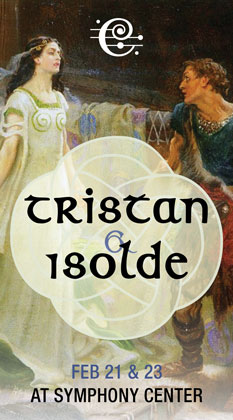 Well, Esa-Pekka Salonen/CSO's Tristan und Isolde was Just gorgeous. The Act I Prelude did not have the tension of Bernstein between the pauses but lush and extremely textural rendition as well as expressive dynamics had me transfixed to the performance.
Well, Esa-Pekka Salonen/CSO's Tristan und Isolde was Just gorgeous. The Act I Prelude did not have the tension of Bernstein between the pauses but lush and extremely textural rendition as well as expressive dynamics had me transfixed to the performance. 




